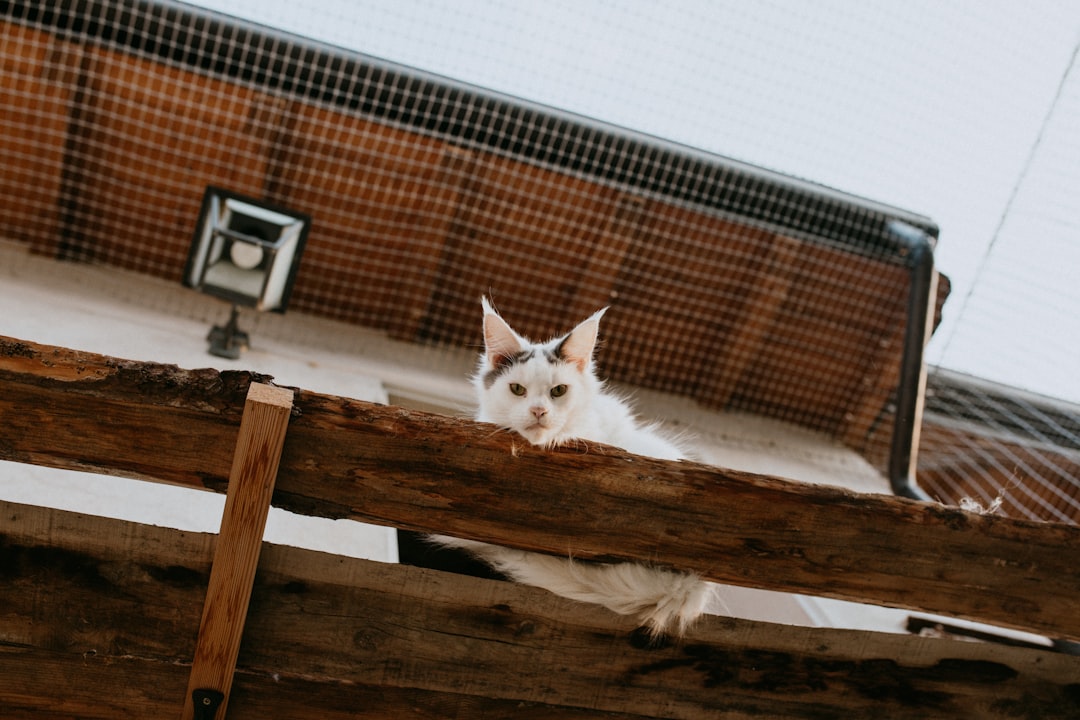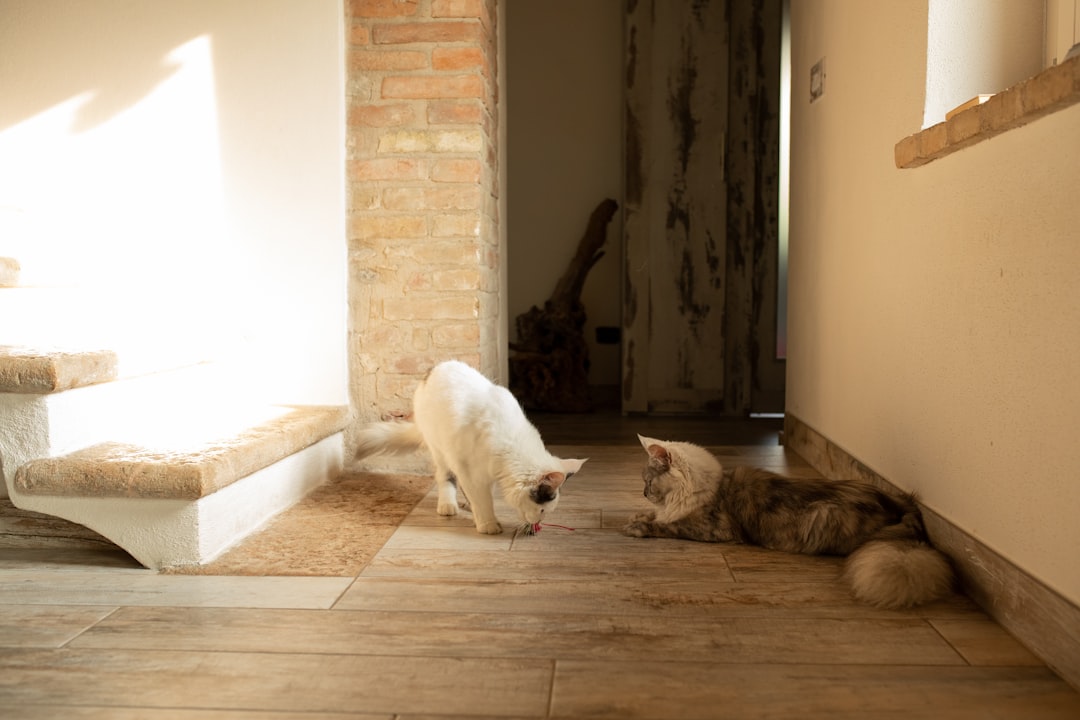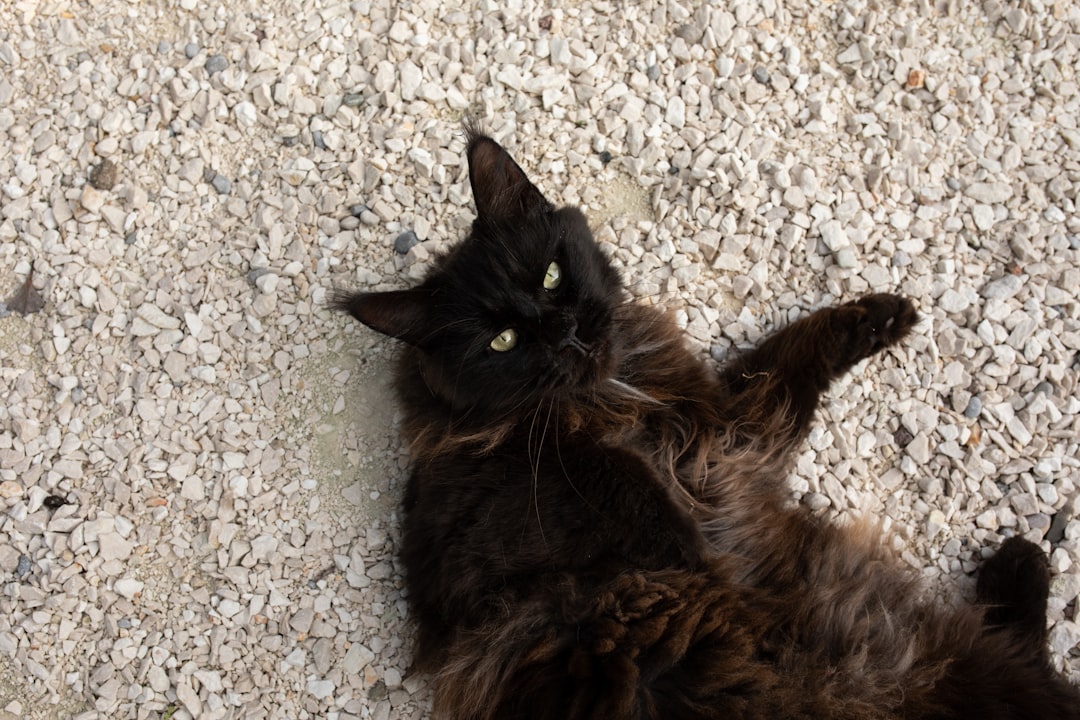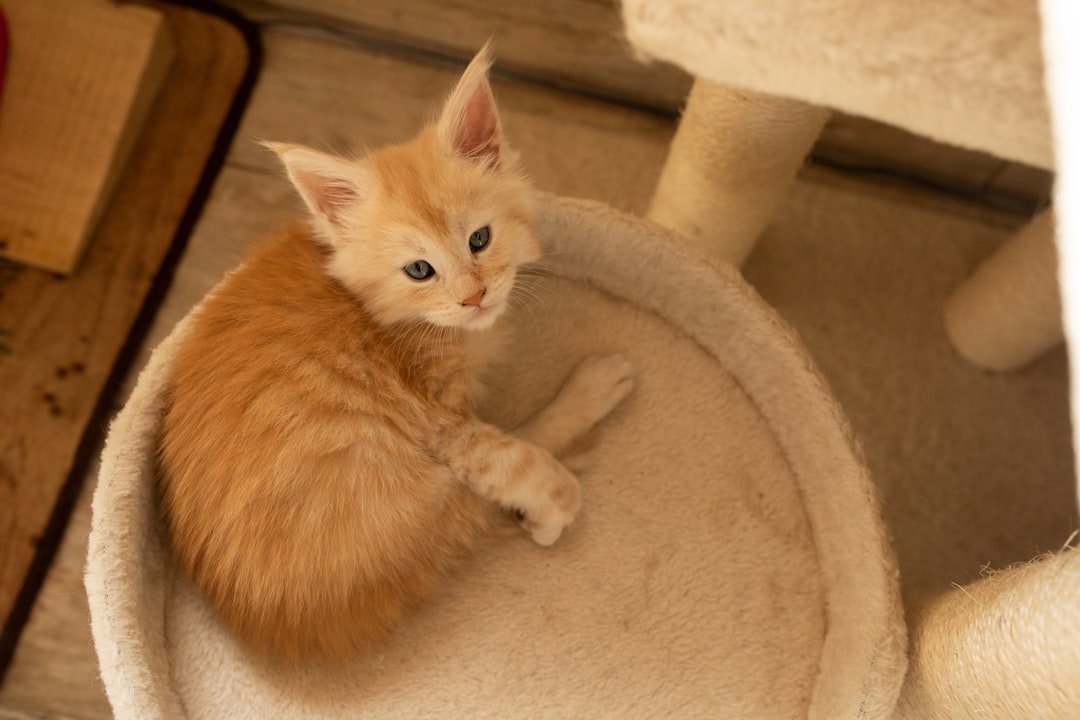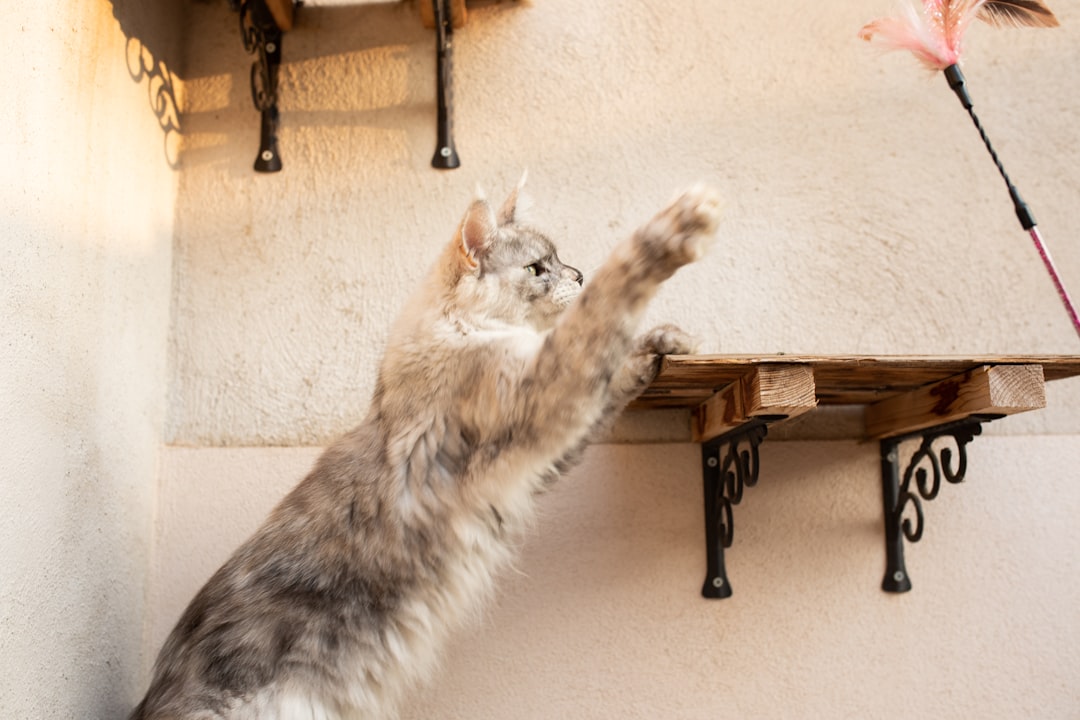Maine Coon Cat Prices in 2024 A Global Comparison of Breeder and Adoption Costs
Maine Coon Cat Prices in 2024 A Global Comparison of Breeder and Adoption Costs - Maine Coon Breeder Prices in North America
Maine Coon cat prices from breeders in North America have shown some changes this year. In the US and Canada, the average cost for a Maine Coon kitten falls between roughly $1,995 and $4,000. It's important to note that the final price can vary widely depending on things like the kitten's family tree, the breeder's reputation, and whether the kitten is intended for showing in competitions or as a pet. Those cats bred for show often have the highest price tags because of their impressive lineage. However, individuals looking for a more budget-friendly Maine Coon might find regular kittens a more accessible option. Many reputable breeders focus on the health and overall well-being of their cats, a factor that can also impact the cost. Buyers should be mindful that these price ranges are a reflection of the current market demand and the breeders' commitment to ethical practices. So, it's crucial to research thoroughly and choose wisely when finding a Maine Coon from a breeder.
Examining the Maine Coon market in North America reveals a price spectrum influenced by a variety of factors. In the US, prices tend to fall between roughly $1,995 and $3,600, while Canada sees a similar range, but stretching a bit higher to $4,000. It's interesting that the Australian market seems to have a slightly lower average range in their currency, between $1,650 and $3,000 AUD.
One of the striking aspects of Maine Coon pricing is the significant difference between acquiring a cat from a breeder versus a shelter. Adopting a Maine Coon from a rescue or shelter usually results in a much more affordable experience, ranging from $100 to $400, showcasing a stark contrast to the breeder market.
Breeders, especially those aiming for "show quality" with pedigrees tied to championship lines, can charge substantially more, sometimes exceeding $3,000. It seems that certain organizations like the Fédération Internationale Féline (FIFe) and the Maine Coon Breeders and Fanciers Association (MCBFA) play a role in defining breeding standards and fostering a more rigorous approach to the breeding process. While potentially beneficial for the breed's health and consistency, this does tend to be reflected in the final purchase price.
Beyond pedigree, other things factor into price. For example, rarer colors and patterns can drive costs up, with some Maine Coons sporting silver or smoke coats fetching prices as high as $5,000. The health and initial setup costs for a kitten, including vaccinations and microchipping, can add a few hundred to over $1,300 to the initial outlay. It's worth noting that breeder reputation and experience also influence price. Breeders who are well-established, have positive track records, and provide rigorous socialization and care can sometimes ask for premiums, pushing the price higher than $4,000. Location also seems to play a role; urban breeders potentially facing higher costs sometimes charge more than those in less dense areas.
Interestingly, there's a consistent seasonal element to pricing, with demand for kittens peaking in spring and summer, leading to possible price increases. These factors provide a fascinating picture of a diverse market influenced by genetics, health, reputation, location and even seasonal demand.
Maine Coon Cat Prices in 2024 A Global Comparison of Breeder and Adoption Costs - European Maine Coon Market Trends
The European Maine Coon market in 2024 presents a unique set of characteristics, with prices and trends diverging from those seen in North America and Australia. The UK market, for example, appears to have a more modest average price range compared to its global counterparts, with Maine Coons typically selling between £850 and £1,000. This could be attributed to a variety of factors including local economic conditions and a potentially different demand for the breed. However, it's also worth noting that exceptional Maine Coons with superior lineage, particularly those aimed at the show circuit, can command substantially higher prices, potentially reaching up to £4,000 or more. This highlights a smaller, but vibrant segment of the market where pedigree and show potential are highly valued.
Another interesting facet of the European market is the distinction in appearance sometimes observed between European and American Maine Coons. Whether this is a significant influence on buyer decisions is debatable, but it does add a layer of complexity and potentially shapes how breeders and buyers perceive the breed.
It's important to remember that the initial cost of a Maine Coon is just the first step in a longer-term financial commitment. The ongoing costs associated with caring for a cat, including veterinary bills, food, grooming, and potential health issues, can add up significantly over the cat's lifetime. Prospective owners in Europe need to consider these recurring expenses when evaluating the overall cost of owning a Maine Coon. While some buyers may prioritize initial price, it's crucial to think about the broader spectrum of financial responsibility involved in sharing a life with one of these magnificent cats.
The European Maine Coon market has seen a noticeable uptick in demand over the past half-decade, with breeding programs focusing more on diversifying the gene pool. This has, unsurprisingly, affected prices and availability. It seems, counterintuitively, that European breeders often have more competitive pricing than their North American counterparts. The average price for a Maine Coon in Europe falls between about 1,500 and 3,800, but this is influenced by both ancestry and regional differences.
It's interesting to observe a shift in Europe where more people are adopting Maine Coons rather than buying from breeders. This increase in adoption from rescue groups specifically focusing on this breed has, in turn, driven down adoption costs, which is a welcome change. The coloration of Maine Coons appears to be a key factor influencing market dynamics. Certain rare colors, like the blue silver tabby, can fetch prices as much as 20% higher than the more common brown tabbies. It seems people really have a preference for cats with unique looks.
In the European market, it seems like genetic health testing has become standard practice. Many breeders are prioritizing screening their cats for various conditions, and this certainly factors into buyer decisions, sometimes justifying higher prices. It's clear that the economy plays a role here too. During times of financial uncertainty, the prices of Maine Coons tend to stay flat or even drop as people reassess their spending on non-essentials.
The European Maine Coon scene has seen the rise of online sales platforms that let breeders sell directly to consumers. This can lower costs, but it also raises concerns about the transparency and ethics of some breeders. It's an interesting trend to watch. Innovative breeding methods, like artificial insemination, are becoming more popular among breeders in Europe. This technology can potentially introduce more genetic diversity, but the added costs often get passed down to consumers.
Where a cat is bred also influences pricing. In fancy city centers like London or Paris, prices can be bumped up by as much as 30%. This might lead people to look for kittens outside of these big cities. The rise of social media has helped some breeders gain notoriety, creating a "celebrity Maine Coon" phenomenon of sorts. Maine Coons linked to popular social media accounts might command a higher price just because they are perceived to be more popular. It's a clear example of how pop culture is impacting the market.
Maine Coon Cat Prices in 2024 A Global Comparison of Breeder and Adoption Costs - Adoption Costs from Shelters and Rescues
Adopting a Maine Coon from a shelter or rescue presents a much more budget-friendly alternative to purchasing from breeders. Adoption fees typically fall between $100 and $400, a stark contrast to the higher costs associated with breeders. It's important to keep in mind that these adoption fees often don't fully cover the expenses of caring for the cat. Rescues rely heavily on donations, fundraising, and adoption fees to support their efforts. There's no government or national animal welfare funding to help cover costs.
These organizations carefully evaluate potential adopters and provide guidance throughout the adoption process to ensure a good match between cat and owner. The number of Maine Coons available for adoption is increasing as more people become aware of the breed and choose adoption over buying. This has created a network of specialized rescue groups committed to finding loving homes for these cats. While adoption costs are lower than breeder prices, future owners should still factor in the ongoing expenses of owning a cat, such as food, veterinary bills, and other necessities. This holistic view of costs ensures a more realistic understanding of the commitment involved in welcoming a Maine Coon into a home.
Adopting a Maine Coon from shelters and rescues generally presents a much more budget-friendly option compared to purchasing from breeders. Adoption fees typically fall within a range of $100 to $400, a fraction of the costs associated with breeder purchases. This economic advantage is appealing to many potential owners seeking a Maine Coon companion.
While adoption fees are lower, it's important to remember that they don't cover the full spectrum of expenses. Recurring costs like food, litter, and veterinary care remain the responsibility of the adopter. However, many shelters do include some upfront medical care in the adoption fee, like initial health checks, vaccinations, and spay/neuter procedures. This can represent a substantial saving for adopters who might otherwise have to bear these costs separately.
Interestingly, adoption fees aren't always uniform. Some organizations might charge higher fees for Maine Coons, reflecting a possible correlation with demand or simply limited availability of the breed. It's intriguing to note that fee variation isn't solely based on the quality of the cat but rather on various market forces.
Shelters and rescue centers actively encourage the adoption of Maine Coons due to the breed's popularity. This focus can lead to a more competitive environment for potential adopters, particularly during popular adoption periods. Furthermore, some shelters and rescues may offer special events or discounts on adoption fees, highlighting a commitment to both animal well-being and financial accessibility.
Another facet of adoption costs is the influence of physical characteristics. Maine Coons with uncommon color variations, for instance, may have slightly higher adoption fees due to potential demand. While still far below breeder prices, this highlights how even in a rescue environment, market preferences can play a role in the final cost to the adopter.
It's worth noting that some shelters might charge similar fees to lower-quality breeders. This creates an interesting dilemma for potential adopters. It begs the question: How much value is placed on a pedigree compared to the assurance of ethical care and the inherent satisfaction of adopting a cat in need?
The use of social media has become a significant tool for shelters to promote their adoptable Maine Coons. This can lead to rapid adoptions, which potentially reduces the long-term care costs associated with housing and maintaining cats in shelters. It's an example of how technology can benefit both shelters and adopters.
While the financial aspects of adoption are important, it's also interesting to note that psychological studies suggest adopting from a rescue can lead to a higher sense of fulfillment compared to purchasing a pet. This aspect of emotional connection and personal satisfaction is an often overlooked but valuable aspect of choosing adoption.
Furthermore, it's crucial for adopters to understand that there may be hidden costs associated with Maine Coon adoption. For instance, grooming costs can be relatively high due to the breed's distinctive long coat. This expense, while not directly part of the initial adoption fee, can be comparable to the maintenance costs of cats purchased from breeders.
The availability of Maine Coon cats through rescues and shelters across various states offers a testament to the growth of rescue efforts and the strong community engagement around Maine Coons. Organizations such as Only Maine Coons Rescue demonstrate the potential for fostering a robust support network for both rescues and prospective adopters, contributing to the ongoing efforts to rehome and support these beloved animals.
It's clear that adopting a Maine Coon can be a financially sound and emotionally fulfilling choice. However, prospective owners need to be mindful of the entire spectrum of costs associated with cat ownership, regardless of whether the cat came from a breeder or a rescue. It is a symbiotic relationship, and a deeper understanding of the economics and implications of ownership leads to a more positive outcome for both the adopter and the adopted cat.
Maine Coon Cat Prices in 2024 A Global Comparison of Breeder and Adoption Costs - Asia-Pacific Region Maine Coon Pricing
The Maine Coon market within the Asia-Pacific region displays a pricing landscape shaped by various elements, such as local demand, the reputation of breeders, and the specific location. Australia, for instance, offers a comparatively moderate price range for Maine Coon kittens, typically between 1,700 and 3,100 Australian dollars. This range, while not exceptionally low, suggests a somewhat more competitive marketplace than some other regions. However, it's crucial to remember that a substantial disparity exists between adoption costs and the cost of obtaining a kitten from a breeder. Adopting a Maine Coon through a shelter or rescue is considerably more economical, usually falling between 100 and 400 Australian dollars.
When considering a Maine Coon, it's essential to recognize that the initial purchase price is only the beginning of the financial commitment. Ongoing expenses, encompassing health care, food, and other needs, contribute to the total cost of ownership. This reality adds a layer of complexity for prospective owners. As the popularity of Maine Coons in the Asia-Pacific region increases, potential owners need to understand this diverse market with its various factors and pricing structures before making a decision about adoption or purchase. The choices available are complex and navigating this landscape thoughtfully can lead to a much better outcome for both the cat and its new owner.
The Maine Coon scene in the Asia-Pacific region presents a fascinating mix of local market dynamics and global trends. In places like Japan and South Korea, prices tend to hover around ¥250,000 to ¥500,000 (roughly $2,300 to $4,600 USD). The local economy and how much people desire the breed seem to influence the prices.
In Southeast Asia, there's a surge in interest in Maine Coons as a kind of unique pet. This has driven up prices, with some breeders asking up to $5,000 for a kitten. This is a clear example of how cultural views about pet ownership can shape market values.
Australia's Maine Coon market is seeing robust growth, with prices rising about 15% in the last two years. This increase is linked to the rising popularity of the breed and an expansion in the number of breeders meeting demand.
One of the noteworthy trends in this region is the considerable difference between adoption and buying from breeders. Shelters and rescue groups typically charge between $150 and $300 for a Maine Coon, whereas reputable breeders could ask for $3,500 or more. This cost disparity underscores the value that pedigree and the breeder's health protocols hold in some markets.
It seems there's an increasing emphasis on genetic health testing in Australia. Many breeders are adopting this screening practice, which can justify higher costs for the kittens. It's sensible that buyers are considering the health aspects a breeder can provide, which factors into the price.
Interestingly, research on how people choose breeders in urban Asian markets reveals a reliance on social media. Many buyers look at online presence first. This behavior has influenced some breeders to place a focus on building their social media reputation. It's an unusual but illustrative example of how pop culture and digital presence can play a role in how breeders are selected.
Like in other regions, the Asia-Pacific market experiences price fluctuations based on seasonality. Around big festivals or holidays, prices often go up. Buyers should be mindful of this factor when timing their purchase.
Cultural preferences regarding color also affect pricing. In certain markets, rarer variations like the silver or torbie Maine Coons can have a 25% markup. This seems to reflect an appreciation for the unique looks that some of these cats have.
Government regulations around animal welfare can impact the cost of Maine Coons. In places like Singapore, strict regulations can increase the operational costs for breeders, leading to higher kitten prices.
Online marketplaces are also changing the way Maine Coons are bought and sold. The ease of direct sales between breeders and buyers can lower costs, but it also introduces concerns about how transparent breeders are and what their welfare standards are. This shift in the market bears watching.
The Asia-Pacific Maine Coon market, in its own unique way, reflects a globalized desire for the breed alongside local economic and cultural idiosyncrasies. It's a dynamic area to study as it unfolds.
Maine Coon Cat Prices in 2024 A Global Comparison of Breeder and Adoption Costs - Additional Expenses for Maine Coon Ownership
Owning a Maine Coon involves ongoing expenses beyond the initial purchase price. Monthly costs, which can reach anywhere from around $90 to over $430, include necessities like food, vet care, and litter. Because of their long, luxurious coats, regular grooming is crucial, potentially adding to costs, especially if professional grooming is needed. Maine Coons, being a playful and intelligent breed, also require enrichment in the form of toys and engaging activities to keep them happy and healthy. Prospective owners need to factor in these ongoing expenses when considering Maine Coon ownership. It's a long-term commitment that demands careful financial planning to ensure the cat's well-being and a positive owner-cat relationship.
Beyond the initial cost of acquiring a Maine Coon, there's a spectrum of ongoing expenses that owners should consider. Their long, luxurious fur necessitates regular grooming, potentially requiring monthly professional services costing between $50 and $150, or the purchase of specialized tools to manage shedding and matting. Given their predisposition to weight issues, maintaining a healthy weight requires a higher-quality diet, with premium cat food potentially costing between $50 and $100 each month.
Routine veterinary check-ups, a cornerstone of preventative care, can be more expensive for Maine Coons due to their larger size and potential health concerns. Yearly wellness visits might cost anywhere from $150 to $400, though this is just an average, and unexpected health issues can greatly impact costs. Moreover, genetic predisposition to conditions like hypertrophic cardiomyopathy necessitates regular screenings. Depending on the test, these can set you back $100 to $400 each.
Dental hygiene is critical, and neglecting it can lead to significant problems down the line. Professional dental cleanings can range from $200 to $500, representing a substantial long-term expense that many overlook. While not always feasible for everyone, pet insurance policies, specifically for Maine Coons, could potentially mitigate some of these costs. These plans usually run between $30 and $80 monthly, aiming to help offset veterinary expenses, especially concerning hereditary issues.
Maintaining a clean and appropriate litter environment can be ongoing expense, requiring monthly purchases of clumping litter and associated cleaning supplies. A reasonable estimate for this would be between $20 and $40 a month. It's also essential to stimulate their intelligent and playful nature, so budgeting between $10 and $50 monthly for toys can be vital for their mental well-being and prevent boredom.
Travel and boarding situations can significantly impact expenses. For frequent travelers, boarding a Maine Coon can range between $30 and $75 per day, and their size might require specific accommodations and increase costs further. Furthermore, specialized harnesses or collars are advisable for safe outdoor activities, adding another expense, ranging from $15 to $50 per item. When it comes to customization for their size and comfort, those costs could rise.
In summary, the costs of owning a Maine Coon can extend well beyond the purchase price. Careful planning and consideration of the potential expenses throughout their life are crucial for responsible ownership. Understanding these long-term financial aspects contributes to the health and well-being of these large and unique cats.
Maine Coon Cat Prices in 2024 A Global Comparison of Breeder and Adoption Costs - Factors Influencing Global Price Variations
The price of Maine Coon cats varies significantly around the world in 2024, driven by a complex interplay of factors. Where a cat is located geographically plays a key role, as do things like the breeder's reputation and the cat's specific lineage. Cats with desirable traits, particularly rare coat colors or desirable ages (kittens being a prime example), are often priced higher. Furthermore, consumer preferences are influenced by local cultural views about cats, which is readily apparent when comparing the Asia-Pacific market to the European market, for instance. Because of this variety in how the market works, buyers need to carefully consider all of the factors before they decide on a Maine Coon. Understanding this can lead to more informed decisions for both those who want to purchase a cat from a breeder or adopt one from a shelter.
A fascinating aspect of the global Maine Coon market is the wide range of prices observed across different regions. This price variation is influenced by a variety of factors, some quite surprising.
For example, regions where breeders prioritize genetic diversity often see more affordable prices for Maine Coons. This increased competition in the breeding sector can lead to better pricing for consumers. Conversely, stricter standards and greater transparency in breeding practices can drive up prices, as these breeders are often required to maintain a higher level of quality. This underscores that the degree to which breeders are open and ethical about their practices can affect costs.
Economic conditions also exert a strong influence on Maine Coon prices. In countries experiencing economic difficulties, the prices of Maine Coons tend to stay stable or even decline as potential buyers reconsider luxury purchases. This underscores the sensitivity of the pet market to broader economic trends.
Interestingly, cultural preferences can dramatically alter price points. In some markets, uncommon coat colors or patterns can increase prices by as much as 20-25%. This showcases how aesthetic tastes within a particular region can significantly influence demand, and therefore, prices.
Location also plays a vital role. Breeders in urban centers may charge significantly more—up to 30%—than their counterparts in rural areas, due to increased operating costs associated with denser populations and higher land values. This urban-rural difference in price structures indicates the way market forces, tied to location, can shape pricing.
Furthermore, transportation costs and supply chain complexities can affect the price of Maine Coons, particularly in regions with limited availability of the breed. Breeders may pass along these increased costs to buyers, creating a somewhat different pricing structure from other regions.
The breeding of show-quality Maine Coons with pedigrees tied to championship lines often commands higher prices, often exceeding $4,000. This phenomenon illustrates how the selection and pairing of breeding cats, based on their lineage, can significantly influence the final cost for buyers.
The advent of social media has impacted the Maine Coon market in unexpected ways. Some breeders with a significant online presence or connected to popular social media accounts can ask higher prices for their kittens, demonstrating how digital visibility can affect buyer perception and drive demand.
In addition to the cultural and technological factors, there’s also a strong seasonal element. Kitten prices typically peak in spring and summer due to increased demand. This underscores that timing is an important consideration for buyers looking for better deals.
Lastly, technological advancements, such as genetic health testing, have gained more prominence among breeders and are impacting price. Breeders that screen their cats for various conditions can often charge more, reflecting the added value of health screening guarantees.
The factors that influence Maine Coon prices are complex, highlighting the interactions between regional economic conditions, cultural preferences, breeding practices, technological advancements and even seasonality. Understanding these factors offers a more complete picture of the dynamic global market for Maine Coon cats.
More Posts from cashcache.co:
- →Comparative Analysis Top 7 Background Check Websites for Diverse Screening Needs in 2024
- →7 Safe Vegetables That Help Combat Dog's Bad Breath and Boost Immunity
- →7 Career Search Engines That Match Jobs With Your Digital Footprint in 2024
- →Where to Find Certified Maine Coon Breeders in North America A 2024 Registry Analysis
- →7 Top-Rated Gold Dealers Comparing Selection, Pricing, and Customer Service in 2024
- →The Hidden Impact of Service Call Fees How Home Warranty Companies Set Their Pricing in 2024
